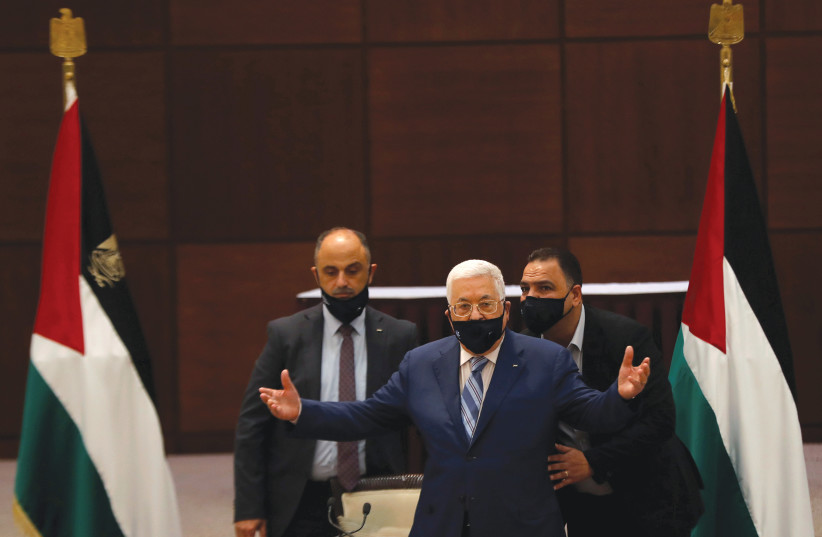The Palestinian leadership, an apparent euphemism for Palestinian Authority President Mahmoud Abbas, has suspended monthly payments to three Palestine Liberation Organization (PLO) opposition factions in an attempt to force them to change their policies, the groups said in a joint statement on Sunday.
The Popular Front for the Liberation of Palestine (PFLP), Democratic Front for the Liberation of Palestine (DFLP) and Palestinian People’s Party (PPP), formerly the Palestinian Communist Party, condemned the decision to halt the funding, saying it aims to “blackmail” them and “undermine their political positions.”
The three groups said that the decision to halt the funds four months ago was taken on an “individual basis,” an apparent reference to Abbas, who also heads the PLO Executive Committee.
“The decision to suspend the payments constitutes a violation of the statute of the PLO and an infringement on the powers of its leading bodies,” the statement read. “It also seriously damages internal relations between the PLO factions.”
According to the PFLP, DFLP and the PPP, the decision “comes at a time when the responsibilities of the three factions are increasing in advancing the popular resistance and confronting the occupation’s policies of settlement expansion, Judaization, ethnic cleansing and apartheid.”

The groups said that the suspension of the funds will not succeed in “blackmailing” them or dissuading them from “continuing their role in defending freedoms and democratic rights of the people in the face of the policies of oppression and authoritarianism.”
PPP Secretary-General Bassam al-Salhi said that his group and the DFLP have decided to boycott meetings of the PLO Executive Committee in protest over the suspension of the funds. Contacts are underway to solve the crisis, he added.
Palestinian political analysts said that the decision was apparently designed to silence critics, ahead of a possible resumption of peace talks between Israel and the Palestinian Authority.
The groups have long been critical of the policies of the PA, especially regarding peace talks with Israel, and the security crackdown on political activists and opponents in the West Bank. They have also criticized the PA leadership for holding meetings with Israeli government officials.
The PFLP and DFLP are critical of the Oslo Accords. The PPP initially supported the agreements but later adopted a hard-line stance concerning the peace process.
Earlier this year, the PPP announced that it would withdraw from the PA government in protest over the death of anti-corruption activist Nizar Banat, who was beaten to death by Palestinian security officers in late June. Despite the decision, the PPP representative in the government, Minister of Labor Nasri Abu Jaish, refused to submit his resignation, prompting the party to expel him from its ranks.
The PFLP does not recognize Israel, opposes peace negotiations, and calls for a one-state solution.
The DFLP has expressed reservations about the Oslo Accords, arguing that they deprive the Palestinians of their legitimate rights. Later, however, the DFLP expressed its readiness to participate in final status talks with Israel.
The PFLP and DFLP have so-called “armed wings” that have over the years carried out several terror attacks against Israel.
The three groups are part of 11 factions represented in the PLO. The ruling Fatah faction, headed by Abbas, is the largest and most dominant, followed by the PFLP.
The PLO factions receive monthly allocations of up to $70,000 from the Palestinian National Fund, founded in 1964 as the PLO’s unofficial “Finance Ministry.”
In 2016, the PFLP and DFLP accused Abbas of suspending their monthly stipends but they were later reinstated.
